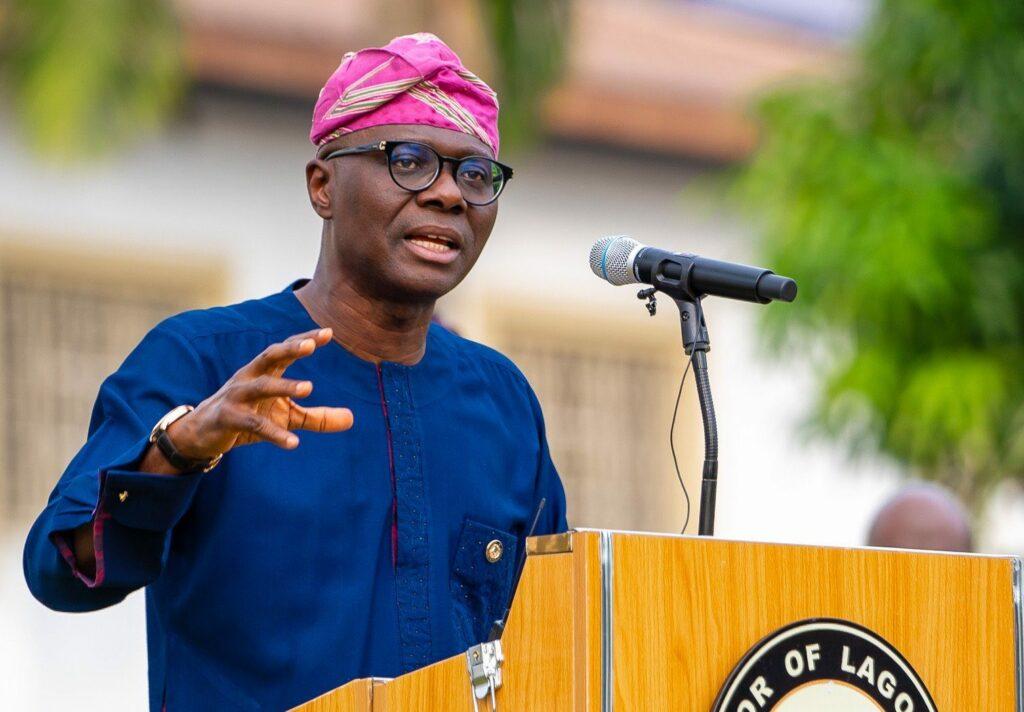
Revolution on Water: Lagos Set to Launch 78 Electric Ferries Under Groundbreaking OMI EKO Project

In a bold stride toward sustainable transportation and urban modernization, the Lagos State Government is set to launch the highly anticipated OMI EKO Project tomorrow, October 17, 2025, marking a new era in the city’s maritime history. The landmark initiative will introduce a fleet of 78 high-capacity electric ferries, each designed to accommodate between 50 and 200 passengers, a first of its kind in West Africa. This ambitious project underscores Lagos’ commitment to transforming its transport system through innovation, eco-friendly technology, and efficient waterway connectivity.
The OMI EKO Project, a name which translates to “Lagos Water,” is more than just a transport initiative—it is a vision of cleaner, faster, and smarter mobility for Africa’s most populous city. For decades, Lagosians have battled chronic traffic congestion on the roads, with millions spending hours in gridlock daily. The state government, recognizing the pressing need for alternative and sustainable solutions, has turned to the waters that surround the megacity. The electric ferry project, according to officials, will not only decongest the roads but also cut down harmful emissions, promote tourism, and enhance the city’s global reputation as a modern smart city.
Ahead of the launch, excitement has swept through the state as residents, commuters, and environmentalists eagerly anticipate the unveiling of the new ferries. The Lagos State Waterways Authority (LASWA) has been finalizing preparations at key jetties across the city, including Falomo, Ikorodu, CMS, Lekki, and Mile 2, where the ferries are expected to operate. Each ferry is equipped with state-of-the-art technology, including GPS navigation, solar-assisted charging systems, real-time passenger monitoring, and onboard safety features to guarantee comfort and security.
Governor Babajide Sanwo-Olu, who is set to preside over the official launch, has described the OMI EKO Project as “a defining step toward a cleaner, more efficient, and sustainable Lagos.” In a recent statement from the Lagos State Ministry of Transportation, the governor emphasized that the initiative aligns with the government’s THEMES+ Agenda, which prioritizes Traffic Management, Transportation, and the Environment. “The OMI EKO Project is not just about transportation,” he said. “It’s about sustainability, innovation, and the future of Lagos. We are investing in systems that make life easier for our people and protect our environment at the same time.”
Sources close to the project revealed that the 78 ferries will be strategically distributed across various routes to ensure widespread accessibility. Major routes include Ikorodu to Marina, Lekki to CMS, Mile 2 to Apapa, and Badore to Falomo, among others. Each electric ferry will operate on clean, rechargeable battery power, drastically reducing carbon emissions compared to traditional diesel-powered boats. With Lagos being a coastal city vulnerable to climate change and environmental degradation, the switch to electric ferries is being hailed as a major win for sustainability and climate action.
The OMI EKO Project also comes with a broader infrastructure plan, including the construction and rehabilitation of modern jetties, charging docks, and water transport terminals. The government has partnered with both local and international engineering firms to ensure the electric ferry system runs seamlessly. Insiders hint that the ferries were designed with cutting-edge technology from Europe and Asia, adapted for Lagos’ unique waterways. The government also plans to train local operators and engineers to manage, maintain, and expand the fleet in the coming years.
Beyond easing traffic and reducing pollution, the project is expected to generate thousands of jobs, directly and indirectly. From construction workers and engineers to ferry operators and maintenance crews, the OMI EKO Project represents a major economic boost for Lagos’ blue economy. Local artisans have also been involved in aspects of design and construction, while Nigerian tech start-ups are providing digital platforms for ticketing and passenger management. Analysts predict that this integration of technology and transport could revolutionize the city’s public mobility experience.
Residents who rely heavily on road transportation have expressed optimism that the OMI EKO ferries will bring much-needed relief to Lagos’ choked roads. “If the ferries are reliable and affordable, this will change everything,” said a daily commuter, Mr. Tunde Adebayo, who travels from Ikorodu to Victoria Island for work. “We’ve been waiting for something like this for years. The traffic can be unbearable, but if I can hop on a ferry and get to work in 25 minutes, that’s a blessing.”
Environmental experts have equally applauded the project. Dr. Aisha Balogun, an environmental scientist at the University of Lagos, said the initiative demonstrates forward-thinking leadership. “The adoption of electric ferries shows that Lagos is serious about tackling climate change and urban pollution,” she remarked. “It’s a visionary step that sets a strong example for other states and even other African cities.”
The OMI EKO Project will also feature a digital ticketing system integrated with the Cowry Card, Lagos’ unified transport payment system used across BRT buses, trains, and other transport networks. This integration ensures passengers can move seamlessly between ferries and other modes of transportation without the hassle of multiple payments. The Lagos Metropolitan Area Transport Authority (LAMATA) has been working closely with LASWA to synchronize transport schedules and routes for maximum efficiency.
While the excitement continues to build, some observers have raised concerns about maintenance and affordability. Past water transport projects in Lagos have often struggled with consistency and long-term funding. However, government officials have assured residents that sustainability has been built into the framework of the OMI EKO Project. “These ferries are designed for durability and low maintenance, and we’ve created a financing model that ensures continued operation without disruption,” said a LASWA representative.
As the countdown to the launch continues, Lagosians are gearing up for what many describe as a historic transformation of the city’s transport landscape. The event is expected to attract dignitaries, investors, environmental groups, and members of the public eager to witness the unveiling of the electric ferries. The launch ceremony will include a demonstration voyage showcasing the ferries’ speed, quiet operation, and zero-emission performance on the Lagos Lagoon.
The OMI EKO Project is more than an infrastructure milestone—it symbolizes a new chapter in Lagos’ journey toward modernization and sustainability. From the iconic yellow buses that define its streets to the gleaming electric ferries that will soon glide across its waters, Lagos is embracing a future where transportation is not only efficient but environmentally responsible. The project’s success could set a precedent for other African cities battling the same urban challenges of congestion, pollution, and limited mobility.
As the first of the 78 electric ferries prepares to sail tomorrow, one thing is clear: Lagos is steering confidently toward a cleaner, smarter, and more connected future. The waves of change are here, and with the OMI EKO Project, the city once defined by traffic jams might soon be defined by innovation, green energy, and world-class transportation on water.

